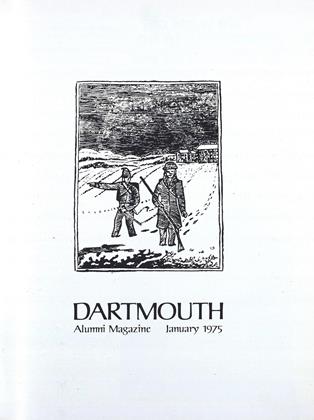In the early spring of 1968, almost accidentally, I found myself in Sacramento, California, as part of the half-avowed Presidential campaign of Governor Ronald Reagan. This was my first glimpse of practical politics.
Until then I had been largely academic and literary, though also a theoretical conservative. Why a conservative? For many reasons, no doubt, but - and I know this will sound strange - at bottom the reason is aesthetic. In my own experience liberalism, with its relentless moralism, its endless hunting after supposed victims to free from supposed oppressors, struck me as predictable, boring, and not a little vulgar. It was always rejecting vitality, enjoyment, and style in the name of a narrow and rather wretched orthodoxy of feeling.
In the summer of 1968, in any case, the superbly organized Nixon campaign roiled over the Reagan forces at Miami Beach. I packed my bags and began driving back across the continent toward Hanover. Somewhere out in the desert, about halfway between Death Valley and some missile testing range, I got a phone call from Nixon headquarters in New York desiring my services as a speech writer. I signed on, as they say, working mostly out of the Park Avenue offices, but sometimes flying around the country with the candidate aboard the "Tricia."
I wrote quite a few speeches that fall, for Nixon and for other Republican speakers, on all sorts of subjects. My masterpiece was Nixon's famous law-and-order speech, delivered in Philadelphia, and I still remember with a craftsman's pleasure my description of Ramsey Clark, then Attorney General, as a "conscientious objector in the war against crime." We knew that Clark was a ripe target, but little did we dream that he would end up broadcasting over Radio Hanoi.
My practical political experience combined with my literary background led first to my installation as a senior editor of National Review, then to the establishment of my syndicated column, which has flourished. To my surprise, I do not find writing three columns a week at all onerous, and the 200-odd papers in which it appears have 20 million readers.
Since I knew most of the top Nixon aides from the 1968 campaign, I had a front seat for the 1972 effort, though mostly as a kibbitzer. Unfortunately, all too many of my friends and associates from that period have ended up in the penitentiary. I certainly do not regard them as villains, but consider that, by the time they and Mr. Nixon became aware of the implications of the Watergate knot, it was too late to untie it. I regret Mr. Nixon's fall, since he seems to me to have been in some ways a pretty good President - in his Supreme Court appointments, for example - though even in his correct domestic initiatives he was half- hearted at best and never entirely grasped what needs to be done.
 View Full Issue
View Full Issue
More From This Issue
-
 Feature
FeatureTHE HUNTERS, OR THE SUFFERINGS OF HUGH AND FRANCIS, IN THE WILDERNESS.
January 1975 -
 Feature
FeatureA Place In the Country
January 1975 By KENNETH A. JOHNSON -
 Feature
FeatureA MEMORANDUM
January 1975 By JAMES L. FARLEY '42 -
 Feature
FeatureNoel Perrin Professor of English 2 pigs on a single form
January 1975 -
 Feature
FeatureCarole Berger Professor of English 2 wolves in a single run
January 1975 -
 Feature
FeatureRobert Huke Professor of Geography 150 catfish in a single dame
January 1975
Features
-
 Feature
FeatureA Recent Interview with Ernest Martin Hopkins' 01
APRIL 1991 -
 Feature
FeatureYORKE BROWN
Sept/Oct 2010 -
 Feature
FeatureRichard Hovey: The Incomplete Arthurian
DECEMBER • 1986 By Daniel P. Nastali -
 Feature
FeatureEDITING ROBERT FROST
FEBRUARY 1972 By EDWARD CONNERY LATHEM '51 -
 Feature
FeaturePersonal History
May/June 2010 By JOE BABCOCK ’08 -
 Feature
FeatureAlumni News
Sep - Oct By Natalia Wrobel ’11, Natalia Wrobel ’11

